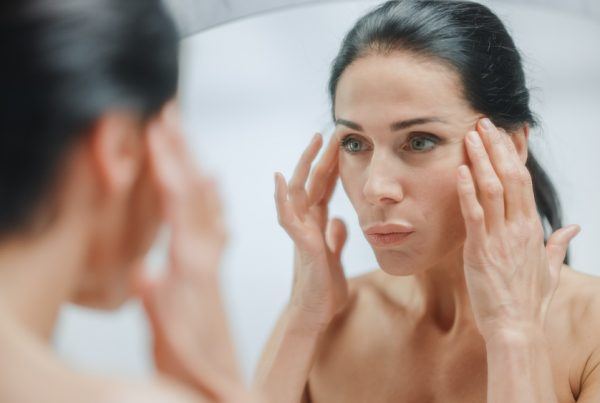As women, our bodies go through a lot every month. From ovulation to PMS and menstruating, it might sometimes feel like you’re on a rollercoaster ride. Our monthly cycle has an effect on just about every part of our body – physically, mentally, emotionally, and of course, our skin.
Your menstrual cycle has a major effect on the appearance of your skin. It may also be to blame for many of the skincare challenges you’re faced with every month. That’s because our hormones play a major role in skin health, and when hormones surge or fluctuate, it shows on your face.
Hormonal Cycles and Your Skin
While every woman’s cycle is unique to her, it’s worth examining a typical monthly cycle to understand how and why your skin might operate the way it does – and what you can do about it. It’s normal to experience ups and downs throughout the month.
Yet with a targeted, good-quality skincare regime and healthy lifestyle, it’s possible to enjoy healthy, great-looking skin throughout all stages of your cycle.
How hormones affect the skin
During a typical menstrual cycle, most women experience bouts of dryness and oiliness. In general, skin becomes most “problematic” just before, and during one’s period. This is the time in which you may experience pesky hormone-related breakouts.
Estrogen production may influence the skin’s texture and thickness, and progesterone production plays a major part in the skin’s natural oil production. When these two hormones fluctuate, it has a direct impact on the skin.
Your cycle days 1 – 6
Due to low hormone production in the first few days of your cycle, your skin may feel dry or somewhat sensitive. This may make lines and wrinkles more noticeable. Apply plenty of hydrating products to counteract dryness, especially products containing hydrating hyaluronic acid.
Your cycle days 7 – 11 (follicular phase)
Estrogen production increases and stimulates cell turnover. For many women, this is the time during which their skin looks and feels its best. This may be a good time to gently exfoliate the skin to prevent clogged pores and to include a vitamin C product in your regime to increase radiance.
Your cycle days 12 – 16 (ovulation)
Estrogen peaks during ovulation. This may result in glowing skin, but you may also notice that your skin becomes a little oilier during this time.
That’s because estrogen and testosterone production slowly decreases and the production of progesterone slowly increases. If not managed, this may lead to the formation of breakouts. Now is a good time to follow a regime that encourages sebum control and to opt for oil-free formulas.
Your cycle days 17 – 28 (luteal phase)
During the luteal phase, progesterone reaches its peak, resulting in the skin producing a lot more oil than usual. You may experience hormonal breakouts during this time. This is a good time to use detoxifying products that draw out impurities and products containing salicylic acid to decrease redness and help existing breakouts heal faster.
Lifestyle tips
Regardless of your individual needs throughout your cycle, everyone’s skin will benefit from following a fresh, healthy diet, cutting back on sugar and caffeine, and cutting out smoking. Drink plenty of water, get enough sleep, exercise regularly, and follow good skin hygiene (that means washing your makeup off every night and stop touching your face!).
Conclusion
Your monthly cycle may affect your mood, your energy levels, and the appearance of your skin. As your body prepares for possible conception leading up to your menstruation period, plenty of hormonal changes occur, leading to fluctuating levels of estrogen, testosterone, and progesterone.
Understanding your cycle is essential, as it affords you the opportunity to better treat your skin at its various stages and address concerns with the right products and ingredients.





![women [longevity live]](https://longevitylive.com/wp-content/uploads/2020/01/photo-of-women-walking-down-the-street-1116984-100x100.jpg)








